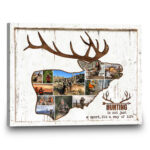I. Introduction
A. Explanation of the concept of a “rustic firefighter”
B. Importance of firefighters and the role they play in rural communities
II. The Life of a Rustic Firefighter
A. Description of the daily responsibilities and tasks of a rural firefighter
B. The challenges and rewards of working in a rural area
III. Training and Qualifications
A. Overview of the necessary training and qualifications to become a firefighter in a rural area
B. Continuing education and certification requirements
IV. Equipment and Resources
A. Description of the equipment and resources used by rural firefighters
B. The importance of proper maintenance and upkeep of equipment
V. Community Involvement
A. The role of rural firefighters in community education and outreach
B. Examples of community events and initiatives involving rural firefighters
VI. Volunteer Fire Departments
A. Overview of volunteer fire departments in rural areas
B. The impact of volunteer firefighters on rural communities
VII. Conclusion
A. Summary of the key points discussed in the article
B. Final thoughts on the importance of rustic firefighters and the vital role they play in rural communities.
I. Introduction
Have you ever heard of a “rustic firefighter”? No, it’s not a firefighter who only fights fires in the woods or in rural areas with a rugged, outdoorsy vibe. Rather, a rustic firefighter is simply a firefighter who works in a rural area, where the job can be both challenging and rewarding in unique ways.
A. Explanation of the concept of a “rustic firefighter”
Firefighters are essential members of any community, and this is especially true in rural areas where resources and access to emergency services may be more limited. Rustic firefighters may work for a municipal fire department, a volunteer fire department, or a combination of both. They may be career firefighters, volunteers, or a mix of both. Regardless of their employment status, the work of a rural firefighter is critical to the safety and well-being of the communities they serve.
B. Importance of firefighters and the role they play in rural communities
Firefighters in rural areas face a unique set of challenges that their urban counterparts may not have to deal with. For one, rural areas are often more spread out, which can make it more difficult to respond to emergencies in a timely manner. Rural firefighters may also have to deal with different types of fires than those in urban areas, such as wildland fires, which require specialized training and equipment.
Despite these challenges, rural firefighters play a vital role in their communities. They provide fire protection and suppression services, of course, but they also often serve as emergency medical responders, providing critical care to those in need before an ambulance can arrive. They may also be involved in community education and outreach efforts, teaching residents about fire safety and prevention.
In many rural areas, the fire department is a central part of the community, and firefighters are often respected and admired for the work they do. In some small towns, the fire station may even serve as a social hub, where community members can come together for events and meetings.
In short, the work of a rustic firefighter is both challenging and rewarding, and it is essential to the safety and well-being of rural communities. In the following sections, we will explore the life of a rural firefighter in more detail, including their daily responsibilities, training and qualifications, equipment and resources, and community involvement.
### The Life of a Rustic Firefighter
Have you ever wondered what it’s like to be a firefighter in a rural area? These brave men and women, often referred to as “rustic firefighters,” face unique challenges and rewards as they work to keep their communities safe.
**A. Description of the daily responsibilities and tasks of a rural firefighter**
A rustic firefighter’s day is never dull. From fighting wildfires to responding to medical emergencies, these firefighters have a wide range of responsibilities. Here are just a few of the tasks they may encounter on a daily basis:
* **Fire suppression:** This is the bread and butter of a firefighter’s job. Rustic firefighters must be prepared to battle wildfires, structure fires, and everything in between. This often involves working long hours in harsh conditions, using specialized equipment to contain and extinguish fires.
* **Medical response:** In many rural areas, the fire department is also responsible for providing medical response. This means that firefighters may need to be trained as EMTs or paramedics, and be ready to respond to medical emergencies at a moment’s notice.
* **Community education:** Rustic firefighters often play a key role in educating their communities about fire safety. This may involve visiting schools, giving talks at community centers, or even going door-to-door to educate residents about the importance of fire safety.
**B. The challenges and rewards of working in a rural area**
Working as a rustic firefighter can be both challenging and rewarding. Here are a few of the unique challenges and rewards that come with the job:
* **Challenge: Limited resources.** Rural fire departments often have limited resources, which can make it difficult to respond to emergencies. This may mean that firefighters need to be more creative and resourceful in their approach to fighting fires.
* **Challenge: Harsh conditions.** Rural firefighters may need to work in harsh conditions, such as extreme heat or cold, rugged terrain, or remote locations. This can make the job physically and mentally demanding.
* **Reward: Making a difference.** There’s no denying that being a firefighter is a rewarding career. Rustic firefighters have the opportunity to make a real difference in their communities, helping to save lives and protect property.
* **Reward: Close-knit community.** Working in a rural area often means being part of a close-knit community. Rustic firefighters often have strong relationships with their colleagues and the communities they serve, which can make the job even more fulfilling.
Being a rustic firefighter is not for the faint of heart. It requires physical strength, mental toughness, and a deep commitment to serving your community. But for those who are up to the challenge, it can be a deeply rewarding and fulfilling career.
The Life of a Rustic Firefighter
Have you ever wondered what it’s like to be a firefighter in a rural area? These brave men and women, often referred to as “rustic firefighters,” face unique challenges and rewards as they work to keep their communities safe.
A. Description of the daily responsibilities and tasks of a rural firefighter
A rustic firefighter’s day is never dull. From fighting wildfires to responding to medical emergencies, these firefighters have a wide range of responsibilities. Here are just a few of the tasks they may encounter on a daily basis:
- Fire suppression: This is the bread and butter of a firefighter’s job. Rustic firefighters must be prepared to battle wildfires, structure fires, and everything in between. This often involves working long hours in harsh conditions, using specialized equipment to contain and extinguish fires.
- Medical response: In many rural areas, the fire department is also responsible for providing medical response. This means that firefighters may need to be trained as EMTs or paramedics, and be ready to respond to medical emergencies at a moment’s notice.
- Community education: Rustic firefighters often play a key role in educating their communities about fire safety. This may involve visiting schools, giving talks at community centers, or even going door-to-door to educate residents about the importance of fire safety.
B. The challenges and rewards of working in a rural area
Working as a rustic firefighter can be both challenging and rewarding. Here are a few of the unique challenges and rewards that come with the job:
- Challenge: Limited resources. Rural fire departments often have limited resources, which can make it difficult to respond to emergencies. This may mean that firefighters need to be more creative and resourceful in their approach to fighting fires.
- Challenge: Harsh conditions. Rural firefighters may need to work in harsh conditions, such as extreme heat or cold, rugged terrain, or remote locations. This can make the job physically and mentally demanding.
- Reward: Making a difference. There’s no denying that being a firefighter is a rewarding career. Rustic firefighters have the opportunity to make a real difference in their communities, helping to save lives and protect property.
- Reward: Close-knit community. Working in a rural area often means being part of a close-knit community. Rustic firefighters often have strong relationships with their colleagues and the communities they serve, which can make the job even more fulfilling.
Being a rustic firefighter is not for the faint of heart. It requires physical strength, mental toughness, and a deep commitment to serving your community. But for those who are up to the challenge, it can be a deeply rewarding and fulfilling career.
### III. Training and Qualifications: Becoming a Rustic Firefighter
Have you ever wondered what it takes to become a firefighter in a rural area? The training and qualifications are both comprehensive and challenging, ensuring that these individuals are well-prepared to handle the diverse and sometimes unpredictable nature of rural firefighting. Let’s take a closer look at what’s involved in becoming a rustic firefighter.
#### A. Overview of the necessary training and qualifications
The first step in becoming a firefighter is to complete a rigorous training program. In the United States, this typically involves earning a Firefighter Certificate from the National Wildfire Coordinating Group (NWCG), which consists of a series of courses and field exercises designed to teach the essential skills needed for firefighting. These courses cover topics such as fire behavior, fireline safety, and wildland fire suppression.
In addition to the NWCG certification, many rural firefighters also hold certifications from the National Fire Protection Association (NFPA) or state-specific organizations. These certifications demonstrate a commitment to professional development and ensure that firefighters are up-to-date on the latest techniques and best practices in firefighting.
It’s important to note that physical fitness is also a crucial aspect of firefighting. Rural firefighters must be able to work long hours in harsh conditions, often carrying heavy equipment and navigating rough terrain. As such, many departments require candidates to pass a physical fitness test before being hired.
#### B. Continuing education and certification requirements
Once a firefighter is certified, the learning doesn’t stop there. Rural firefighters are required to complete ongoing training and education to maintain their certifications and stay current on the latest techniques and equipment. This may include attending workshops, conferences, or online courses, as well as participating in regular drills and exercises with their department.
In addition to continuing education, many rural firefighters also seek out advanced certifications to further their careers and improve their skills. For example, a firefighter may choose to pursue a certification in incident command or wildland fire operations, which can lead to leadership roles or specialized positions within a department.
### Becoming a rustic firefighter: A rewarding challenge
Becoming a rustic firefighter is no easy feat, but the rewards are immeasurable. Not only do these men and women play a vital role in protecting rural communities from the threat of fire, but they also have the opportunity to work in some of the most beautiful and remote parts of the country.
If you’re considering a career in rural firefighting, it’s important to do your research and make sure you’re prepared for the challenges ahead. Talk to current firefighters, attend training sessions, and volunteer with your local fire department to get a better sense of what the job entails. With hard work, dedication, and a passion for serving your community, you too can become a valuable member of the rustic firefighting team.
III. Training and Qualifications: Becoming a Rustic Firefighter
Have you ever wondered what it takes to become a firefighter in a rural area? The training and qualifications are both comprehensive and challenging, ensuring that these individuals are well-prepared to handle the diverse and sometimes unpredictable nature of rural firefighting. Let’s take a closer look at what’s involved in becoming a rustic firefighter.
A. Overview of the necessary training and qualifications
The first step in becoming a firefighter is to complete a rigorous training program. In the United States, this typically involves earning a Firefighter Certificate from the National Wildfire Coordinating Group (NWCG), which consists of a series of courses and field exercises designed to teach the essential skills needed for firefighting. These courses cover topics such as fire behavior, fireline safety, and wildland fire suppression.
In addition to the NWCG certification, many rural firefighters also hold certifications from the National Fire Protection Association (NFPA) or state-specific organizations. These certifications demonstrate a commitment to professional development and ensure that firefighters are up-to-date on the latest techniques and best practices in firefighting.
It’s important to note that physical fitness is also a crucial aspect of firefighting. Rural firefighters must be able to work long hours in harsh conditions, often carrying heavy equipment and navigating rough terrain. As such, many departments require candidates to pass a physical fitness test before being hired.
B. Continuing education and certification requirements
Once a firefighter is certified, the learning doesn’t stop there. Rural firefighters are required to complete ongoing training and education to maintain their certifications and stay current on the latest techniques and equipment. This may include attending workshops, conferences, or online courses, as well as participating in regular drills and exercises with their department.
In addition to continuing education, many rural firefighters also seek out advanced certifications to further their careers and improve their skills. For example, a firefighter may choose to pursue a certification in incident command or wildland fire operations, which can lead to leadership roles or specialized positions within a department.
Becoming a rustic firefighter is no easy feat, but the rewards are immeasurable. Not only do these men and women play a vital role in protecting rural communities from the threat of fire, but they also have the opportunity to work in some of the most beautiful and remote parts of the country.
If you’re considering a career in rural firefighting, it’s important to do your research and make sure you’re prepared for the challenges ahead. Talk to current firefighters, attend training sessions, and volunteer with your local fire department to get a better sense of what the job entails. With hard work, dedication, and a passion for serving your community, you too can become a valuable member of the rustic firefighting team.
### Equipment and Resources: The Lifeline of a Rustic Firefighter
When it comes to fighting fires, having the right equipment and resources can make all the difference. This is especially true for rustic firefighters, who work in rural areas where resources may be limited and response times can be longer. But what exactly does a rustic firefighter need to effectively do their job? Let’s take a closer look.
#### Necessary Equipment
Fire trucks are the most obvious piece of equipment used by firefighters, and rustic firefighters are no exception. However, the type of fire truck needed can vary depending on the specific needs of the community. For example, a rural fire department may use a brush truck, which is a smaller, more maneuverable vehicle designed for fighting wildland fires.
Personal protective equipment (PPE) is also crucial for firefighters. This includes helmets, gloves, boots, and turnout gear, which is a specialized outerwear designed to protect firefighters from heat, flames, and other hazards.
Communication devices, such as radios, are also an essential part of a rustic firefighter’s equipment. These devices allow firefighters to stay in contact with each other and with dispatch, ensuring a coordinated response to emergencies.
#### Proper Maintenance and Upkeep
Having the right equipment is only half the battle – it’s also important to ensure that the equipment is properly maintained and in good working order.
Regular inspections and maintenance of fire trucks and other equipment can help to identify any potential issues before they become serious problems. This includes checking the tires, brakes, and lights on fire trucks, as well as ensuring that hoses and other equipment are in good condition.
Proper cleaning and storage of PPE is also important. For example, turnout gear should be cleaned and dried after each use to prevent the buildup of harmful chemicals and bacteria. It should also be stored in a cool, dry place to prevent damage from extreme temperatures or moisture.
#### Resources: More Than Just Equipment
While equipment is an important part of a rustic firefighter’s resources, it’s not the only thing they need. Training and education are also crucial for firefighters. Ongoing training ensures that firefighters are up-to-date on the latest techniques and technologies, and can help to improve their skills and knowledge.
Additionally, community support and involvement are vital for rural fire departments. Fundraising events, such as pancake breakfasts or spaghetti dinners, can help to raise funds for new equipment or training. Community outreach and education programs can also help to raise awareness about fire safety and prevention.
#### The Importance of Equipment and Resources
Having the right equipment and resources can make all the difference when it comes to fighting fires and saving lives. Proper maintenance and upkeep of equipment ensures that it is always ready when needed, and community support and involvement can help to provide additional resources and funding.
Rustic firefighters play a vital role in rural communities, and having the right equipment and resources is just one way they can continue to do so effectively.
Equipment and Resources: The Lifeline of a Rustic Firefighter
When it comes to fighting fires, having the right equipment and resources can make all the difference. This is especially true for rustic firefighters, who work in rural areas where resources may be limited and response times can be longer. But what exactly does a rustic firefighter need to effectively do their job? Let’s take a closer look.
Necessary Equipment
Fire trucks are the most obvious piece of equipment used by firefighters, and rustic firefighters are no exception. However, the type of fire truck needed can vary depending on the specific needs of the community. For example, a rural fire department may use a brush truck, which is a smaller, more maneuverable vehicle designed for fighting wildland fires.
Personal protective equipment (PPE) is also crucial for firefighters. This includes helmets, gloves, boots, and turnout gear, which is a specialized outerwear designed to protect firefighters from heat, flames, and other hazards.
Communication devices, such as radios, are also an essential part of a rustic firefighter’s equipment. These devices allow firefighters to stay in contact with each other and with dispatch, ensuring a coordinated response to emergencies.
Proper Maintenance and Upkeep
Having the right equipment is only half the battle – it’s also important to ensure that the equipment is properly maintained and in good working order.
Regular inspections and maintenance of fire trucks and other equipment can help to identify any potential issues before they become serious problems. This includes checking the tires, brakes, and lights on fire trucks, as well as ensuring that hoses and other equipment are in good condition.
Proper cleaning and storage of PPE is also important. For example, turnout gear should be cleaned and dried after each use to prevent the buildup of harmful chemicals and bacteria. It should also be stored in a cool, dry place to prevent damage from extreme temperatures or moisture.
Resources: More Than Just Equipment
While equipment is an important part of a rustic firefighter’s resources, it’s not the only thing they need. Training and education are also crucial for firefighters. Ongoing training ensures that firefighters are up-to-date on the latest techniques and technologies, and can help to improve their skills and knowledge.
Additionally, community support and involvement are vital for rural fire departments. Fundraising events, such as pancake breakfasts or spaghetti dinners, can help to raise funds for new equipment or training. Community outreach and education programs can also help to raise awareness about fire safety and prevention.
The Importance of Equipment and Resources
Having the right equipment and resources can make all the difference when it comes to fighting fires and saving lives. Proper maintenance and upkeep of equipment ensures that it is always ready when needed, and community support and involvement can help to provide additional resources and funding.
Rustic firefighters play a vital role in rural communities, and having the right equipment and resources is just one way they can continue to do so effectively.
V. Community Involvement
The Role of Rural Firefighters in Community Education and Outreach
Rural firefighters play a crucial role in their communities, not only fighting fires but also educating and engaging with community members to promote fire safety. Fire prevention is a key aspect of a rural firefighter’s job, and they often work with schools, community organizations, and individuals to provide fire safety training and resources.
A big part of fire prevention is ensuring that community members are aware of the risks and take the necessary precautions to prevent fires from starting in the first place. Rural firefighters often conduct home safety inspections, checking for things like working smoke detectors, proper storage of flammable materials, and safe cooking practices. They also provide educational resources and materials, such as fire safety brochures and information on fire extinguisher use.
Examples of Community Events and Initiatives
Rural firefighters are often involved in a variety of community events and initiatives, such as fire safety fairs, open houses, and public education campaigns. For example, many fire departments host an annual open house, inviting community members to tour the fire station, meet the firefighters, and learn about fire safety.
Fire safety fairs are another popular community event, featuring interactive displays and activities for children and adults. These events provide a fun and engaging way for community members to learn about fire safety and prevention. Some fire departments also offer CPR and first aid training to the public, further emphasizing their commitment to community safety.
The Importance of Community Involvement
Community involvement is a vital part of a rural firefighter’s job. By engaging with community members and providing education and resources, firefighters can help prevent fires and keep their communities safe. This not only helps to reduce the number of fires that firefighters need to respond to but also builds trust and rapport between firefighters and the communities they serve.
Additionally, community involvement helps to raise awareness about the important role that firefighters play in rural communities. Many people may not realize the challenges and risks that rural firefighters face or the many hats they wear in their roles as first responders, educators, and community leaders.
VI. Volunteer Fire Departments
Overview of Volunteer Fire Departments in Rural Areas
Many rural fire departments are staffed by volunteers, who donate their time and skills to keep their communities safe. Volunteer firefighters come from all walks of life, including farmers, business owners, and retirees. They receive training and certification just like career firefighters, and they are held to the same standards of professionalism and safety.
The Impact of Volunteer Firefighters on Rural Communities
Volunteer firefighters play a critical role in rural communities, providing fire protection and emergency medical services when they are needed most. They are often the first responders on the scene of an emergency, and their quick action and expertise can make all the difference in a life-threatening situation.
In addition to their emergency response duties, volunteer firefighters also play a vital role in community education and outreach. They often participate in community events and initiatives, providing fire safety training and resources to community members. They also serve as role models and mentors, inspiring the next generation of firefighters and first responders.
VII. Conclusion
Rural firefighters play a vital role in their communities, providing fire protection and emergency medical services when they are needed most. They are also committed to community education and outreach, working to promote fire safety and prevent fires from starting in the first place.
In addition to their daily responsibilities, rural firefighters must also maintain their equipment and resources, stay up-to-date on the latest training and certification requirements, and be prepared to respond to emergencies at a moment’s notice. It’s a challenging and rewarding career, and one that requires a deep commitment to serving the community.
So the next time you see a rural firefighter, take a moment to thank them for their service and dedication to keeping their community safe. They are true heroes, working tirelessly behind the scenes to ensure that we are all protected in the event of an emergency.
Volunteer Fire Departments: A Vital Part of Rural Communities
When you think of a firefighter, you might imagine a big city department with shiny trucks and a large staff. But in many rural areas, fire departments are made up entirely of volunteers. These “rustic firefighters” are an essential part of their communities, providing critical emergency services and much more.
What is a Volunteer Fire Department?
A volunteer fire department (VFD) is a fire department that is staffed primarily by unpaid volunteers. These departments serve rural areas and small towns where it may not be financially feasible to support a full-time, paid staff. Despite being unpaid, these volunteers undergo rigorous training and are just as skilled and capable as their paid counterparts.
The Importance of Volunteer Fire Departments
Volunteer fire departments play a vital role in rural communities. They provide fire protection, emergency medical services, and rescue operations. In many cases, they are the first responders to emergencies, and their quick action can mean the difference between life and death. But their role goes beyond just emergency response.
- Community Education: VFDs often provide education and outreach to their communities. They may offer fire safety training, CPR classes, and other safety-related programs. This helps to keep the community safe and informed.
- Community Involvement: VFDs are often an integral part of their communities. They participate in parades, festivals, and other community events. This helps to build strong relationships between the department and the community, which can be crucial in emergency situations.
The Impact of Volunteer Firefighters
The impact of volunteer firefighters on their communities cannot be overstated. They provide critical services, but they also serve as role models and leaders. They are often involved in other community organizations and activities, and their dedication and service inspire others to get involved as well.
Volunteer firefighters also save their communities a significant amount of money. According to the National Volunteer Fire Council, volunteer fire departments save local governments more than $140 billion per year. This is money that can be used for other critical services, such as schools and roads.
Becoming a Volunteer Firefighter
If you’re interested in becoming a volunteer firefighter, there are a few things you should know. First, you will need to undergo a background check and a physical examination. You will also need to complete a training program, which can take several months. Once you’ve completed your training, you’ll be ready to join the ranks of the brave men and women who serve their communities as volunteer firefighters.
Supporting Your Local Volunteer Fire Department
If you don’t have the time or ability to become a volunteer firefighter, there are still ways you can support your local VFD. You can attend their fundraising events, make a donation, or simply thank them for their service. These small gestures can mean a lot to these volunteers, who give so much of their time and energy to keep their communities safe.
Conclusion
Volunteer fire departments are a vital part of rural communities. They provide critical services, build strong community relationships, and save local governments millions of dollars each year. If you’re looking for a way to give back to your community, consider becoming a volunteer firefighter. It’s a challenging and rewarding experience that will leave you feeling proud and fulfilled.
VII. Conclusion: The Vital Role of Rustic Firefighters in Rural Communities
In this article, we’ve explored the unique role of rustic firefighters in rural communities, diving into their daily tasks, training requirements, and the challenges they face. We’ve also highlighted the importance of community involvement and volunteer fire departments in supporting these heroes.
Summary of Key Points
To recap, rustic firefighters are responsible for a wide range of duties in rural areas, from fire suppression and emergency medical services to public education and outreach. They must undergo rigorous training and maintain certification to ensure their skills remain up-to-date and effective.
Moreover, we’ve discussed the critical role that volunteer fire departments play in rural communities, providing essential services and support often with limited resources. The dedication and commitment of these volunteers have a lasting impact on the safety and well-being of their communities.
The Unwavering Importance of Rustic Firefighters
As we reflect on the vital role that rustic firefighters play in rural communities, it’s clear that their work goes far beyond simply putting out fires. They are the guardians of the land, protectors of their neighbors, and educators dedicated to empowering their communities with knowledge and resources.
Through their tireless efforts, rustic firefighters help preserve the natural beauty and tranquility of rural areas while ensuring that residents feel safe and supported. They are a testament to the resilience and spirit of the communities they serve.
Join the Movement
If you’re inspired by the work of rustic firefighters and are considering a career in this field, now is the perfect time to take action. Reach out to your local volunteer fire department to learn more about available opportunities and the steps you can take to become a part of this incredible community.
Together, we can continue to support and uplift the vital work of rustic firefighters, ensuring that rural communities remain safe, informed, and empowered.










Comments